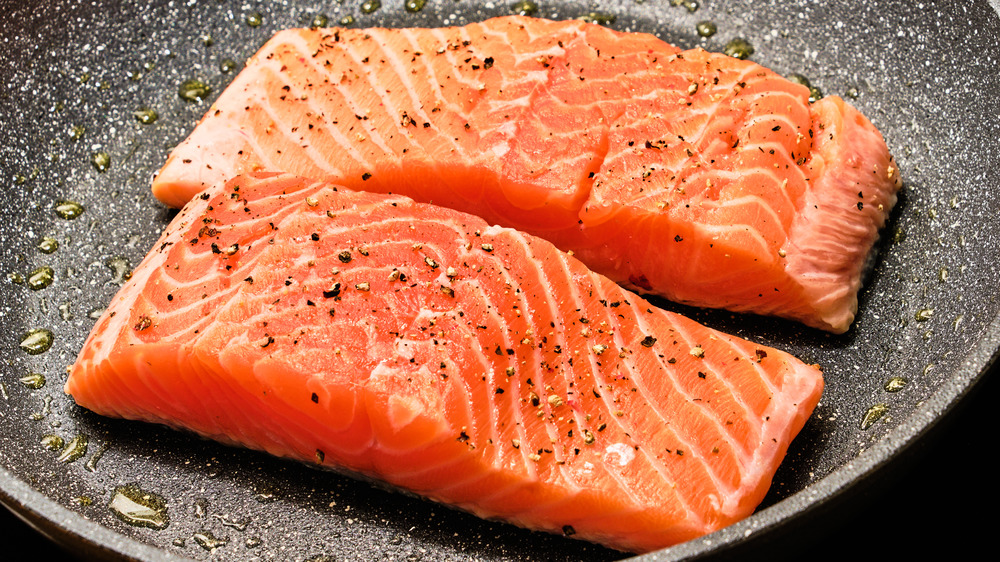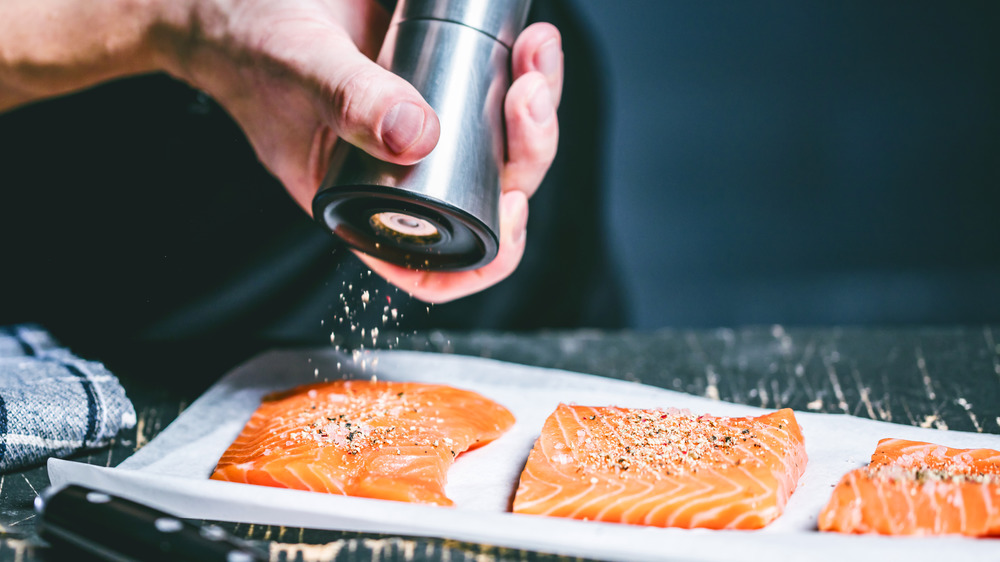This Is The Best Time To Season Salmon
There are a lot of things you can do with salmon. You can grill it. You can steam it. You can bake it. You can fry it. No matter how you make it, when salmon is cooked properly, it's delicious and good for you (it's high in omega-3 fatty acids, protein, and other vitamins, according to Healthline). However, from thawing it incorrectly to forgetting to remove the pin bones, there are a few common mistakes that people make when trying to cook salmon at home.
Another one of those fishy faux pas? Seasoning your salmon wrong. More specifically, seasoning it at the wrong time. It might sound minor, but exactly when you sprinkle salt and pepper (or any other spice) onto your filet can actually make a big difference in the final product, both taste-wise and texture-wise. Here's what you need to know about seasoning your salmon so you can enjoy the tastiest, juiciest piece of fish.
Seasoning should be the last step before you cook it
Everyone knows that when you're making steak, you should salt it well in advance of cooking (even overnight!). However, the opposite is true for when you're making salmon. According to Kitchn, you should salt and pepper your salmon filet immediately before you cook it. This is because when you season your salmon too early, the salt actually starts to break down the protein in the fish and sucks up some of the moisture. The result? A final dish that's drier and tougher than you'd like.
City Fish Market says it's best to wait to season your fish until you're ready to throw it on the pan (or in the oven or on the grill). It recommends not salting your salmon any earlier than 15 minutes before you cook it. Psst: This rule of thumb applies to all methods of cooking of salmon, whether you're grilling, steaming, baking, etc.

